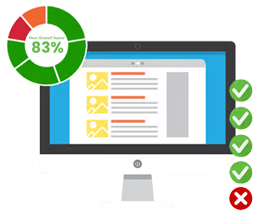How Long Does It Take to Build a Website? A Comprehensive Guide

Having a strong online presence is essential for businesses, organisations, and individuals alike. Whether you're creating a personal blog, an e-commerce site, or a corporate website, one common question often arises: "How long does it take to build a website?" In this blog post, we'll explore the factors that influence website development timelines and provide insights into the different stages of the process, helping you gain a better understanding of what to expect when embarking on your web development journey.
Introduction: The Digital Frontier
Building a website is akin to constructing a digital outpost—a place where you can showcase your ideas, products, or services to the world. It's a venture that holds immense potential, but like any construction project, it requires careful planning, precise execution, and a clear timeline. So, let's dive into the factors that play a crucial role in determining how long it takes to build a website.
Factors Influencing Website Development Timelines
-
Scope and Complexity: The size and complexity of your website are fundamental factors. A simple personal blog may take significantly less time than a complex e-commerce platform with numerous features.
-
Design Requirements: Crafting a unique, visually appealing design can be time-consuming. Custom designs often take longer to create than using pre-made templates.
-
Content Preparation: Gathering and preparing content, including text, images, videos, and other media, can be a lengthy process, particularly if you're creating a large website.
-
Functionality: The specific features and functionality you want on your site, such as e-commerce capabilities, membership systems, or interactive elements, can impact the timeline.
-
Custom Development vs. Off-the-Shelf Solutions: Developing custom solutions often takes longer than using existing plugins, modules, or themes.
The Website Development Timeline
-
Planning and Strategy (1-2 weeks): The initial phase involves defining your website's goals, target audience, and content strategy. It's crucial for setting the direction of the project.
-
Design (1-3 weeks): Designing the website includes creating wireframes, mockups, and final designs. This phase focuses on the visual aspects and user experience. It is essential to provide honest feedback during this process.
-
Content Creation and Gathering (2-4 weeks): Developing and organising content is a critical step. This includes writing copy, sourcing images, and preparing multimedia elements.
-
Development (1-6 weeks): This is where the technical work happens. Developers build the website, integrate functionality, and ensure it works across various devices and browsers. The simpler the site funcctionality the less development time is required.
-
Testing (1-2 weeks): Rigorous testing is essential to identify and resolve any issues, ensuring the website functions smoothly.
-
Review and Feedback (1-2 weeks): You'll have a chance to review the website, provide feedback, and request revisions.
-
Launch (1-3 days): After final approval, the website is prepared for launch, including domain setup and hosting configuration.
-
Post-Launch (Ongoing): Website maintenance, updates, and ongoing optimisation are crucial for its long-term success.
Conclusion: Patience Yields Excellence
In summary, the time it takes to build a website varies widely based on your project's scope, complexity, and unique requirements. While it's natural to be eager to launch your digital presence, it's essential to understand that patience and thorough planning can lead to a more successful and polished website. By working closely with experienced developers and designers, you can navigate the digital frontier with confidence, ensuring that your website becomes a valuable asset for your goals and aspirations.





